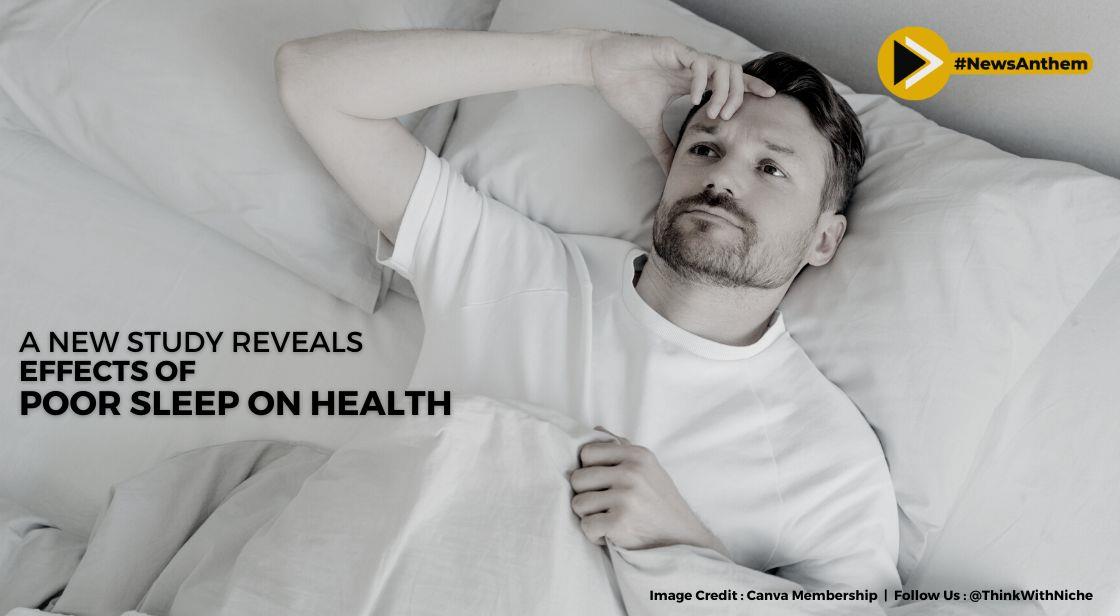Poor Sleep Linked To Years Of Poor Cardiovascular Health: Study Findings

News Synopsis
Poor sleep quality has been linked in studies to years of heart disease. An increased risk of heart disease and perhaps premature deaths could result from insufficient sleep, according to a recent study conducted by Southern Denmark University and the University of Sydney researchers.
Men with clinical sleep-related breathing difficulties, for instance, lost almost seven years of cardiovascular disease-free life, while women lost over seven years, compared to those without similar diseases. Moreover, even general poor sleep habits including insufficient sleep, complaints of insomnia, snoring, late-night sleeping, and daytime sleepiness are linked to a loss of two years' worth of healthy heart function in both men and women.
"Sleep apnoea is well known to increase the risk of cardiovascular disease and other chronic conditions, but these findings are a wake-up call that poor sleep, in general, can pose a significant risk to heart health."
The team created three sleep categories at age 40: poor, intermediate, and healthy using a validated composite sleep score that included self-reported sleep duration, insomnia complaints, snoring, daytime sleepiness, and whether the person was a night owl or an early bird. This was compared with their overall cardiovascular disease-free health expectancy.
The researchers were able to evaluate health outcomes for self-reported sleep patterns and professionally diagnosed illnesses such as sleep-related breathing disorders by integrating the study participants' self-reported data with clinical data from their doctors in the two years before the study. In order to compare participants' health outcomes in old age, the team classified subjects as poor, intermediate, and healthy sleepers at the age of 40.
Compared to women who get enough sleep, men who have poor sleep are more likely to have their cardiovascular health affected for more than two years. Women who slept in the middle lost almost a year of heart disease-free life, and males lost slightly more time.
According to Dr. Bo-Huei Huang, lead author of the study and recent graduate of the Charles Perkins Centre and Faculty of Medicine and Health, "While the average life expectancy of the UK study participants is around 80 years, people with clinically diagnosed sleep-related breathing disorders like sleep apnoea lost over seven years of cardiovascular-disease free life," despite the participants in the UK study having an average life expectancy of about 80 years.
These results, according to Professor Peter Cistulli, the ResMed Chair of Sleep Medicine at the Charles Perkins Institute and Royal North Shore Hospital, are significant because they build on earlier research that connected inadequate sleep to critical health outcomes.
You May Like









